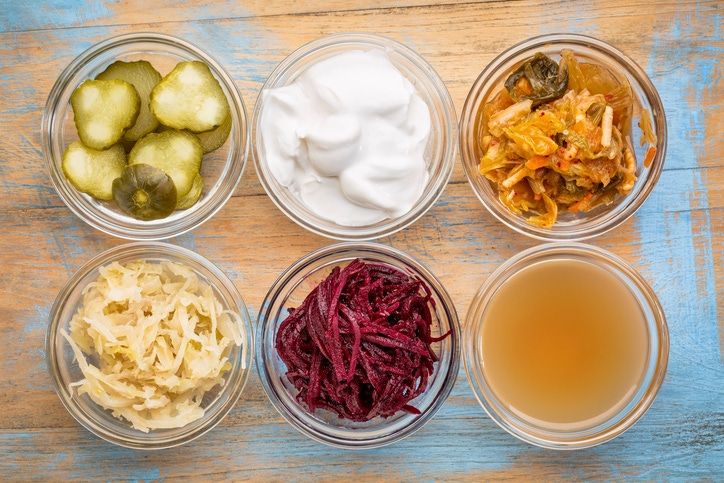July 12, 2017

NFM: I keep hearing about the health benefits of fermented foods. Do they all contain probiotics? In that respect, are all packaged fermented products pretty much the same?
Store: All of the refrigerated fermented items here—this kimchi, this miso, this cabbage—are raw, so the probiotics are still intact.
NFM: I can be sure they’re intact just because the packaging says fermented? So why do some of the ingredients lists say live active cultures while others do not?
Store: I am not an expert on this and don’t want to steer you wrong, but I think that if a label mentions Lactobacillus or something similar, it means probiotics have been added to that food. You’ll see that with canned fermented foods. But with raw products, even when there aren’t specific bacteria listed, the probiotics are still in there. Although I don’t know how to tell what kinds or how many.
How did this retailer do?
Our expert educator: Amy Burkhart, MD, an integrative physician and registered dietitian in Napa, California
The employee is partially correct about the refrigerated items. While refrigeration does help assure that probiotic bacteria are still present, not all fermented products are the same. Some do not contain 
Also, the bacteria species differ depending on the product and manufacturer. The retailer is correct that it’s difficult to tell what type and count of bacteria are present, but there are standards that particular types of bacteria are used for particular products. Certain products such as sauerkraut do not have added bacteria because the bacteria are naturally present in the plant.
As we learn more about specific species and their effects, this may become an important factor in knowing how certain products affect particular health issues. Even though fermented foods have been eaten for thousands of years, the research is only recently being done. So far, benefits include lower risk of heart disease and certain cancers, improved immune and gastrointestinal function, and better weight management and blood sugar control.
You May Also Like
.png?width=700&auto=webp&quality=80&disable=upscale)


